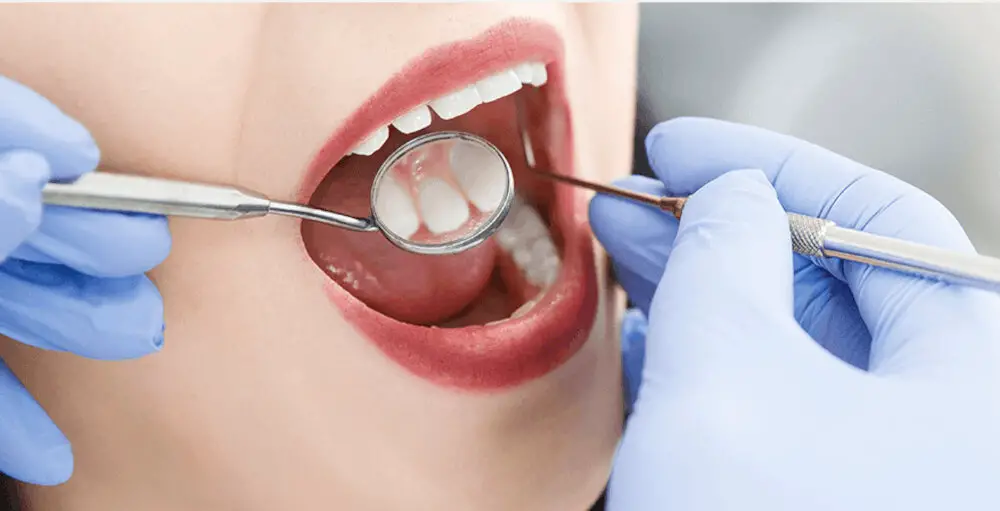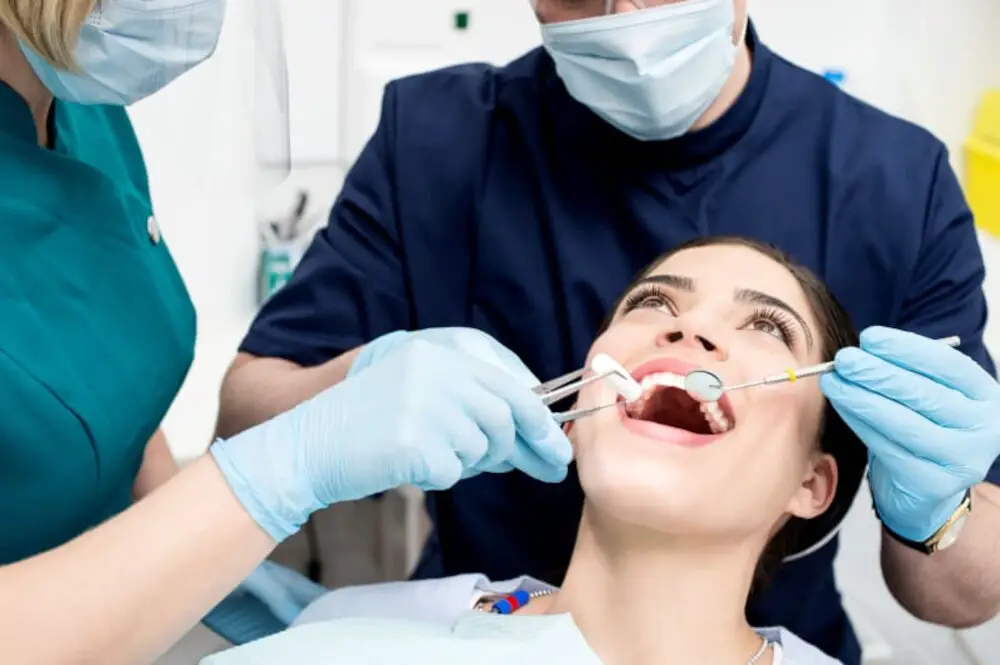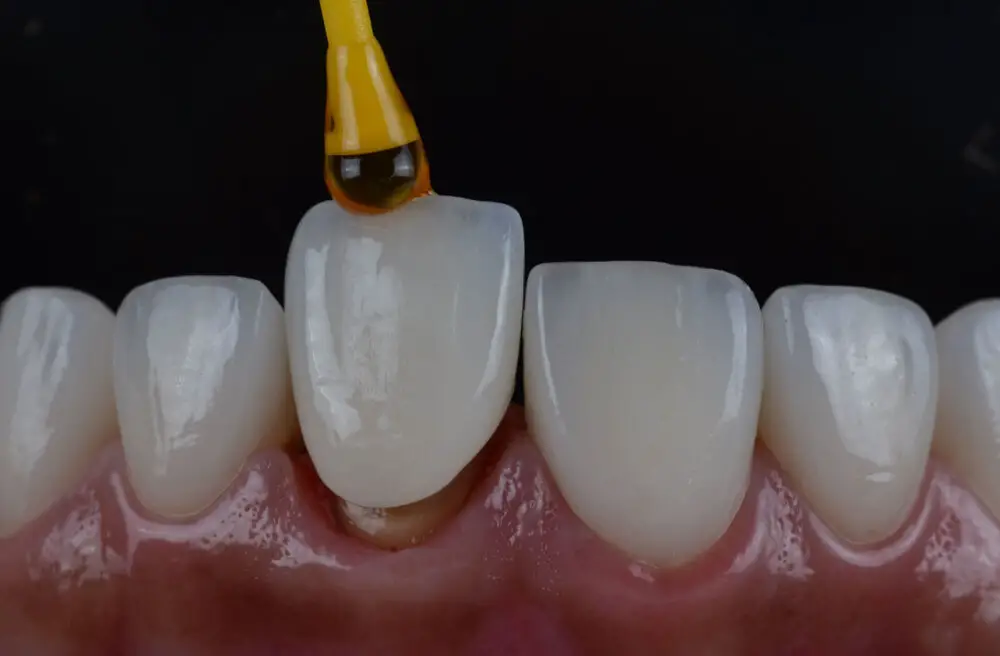Why Does My Baby Grind His Teeth? 5 Surprising Reasons You Need to Know

As a parent, you may have noticed your baby grinding their teeth, and it can be concerning. Teeth grinding in babies is a common phenomenon that is observed in infants and toddlers. While it might be alarming, it’s generally harmless. However, it’s essential to understand the underlying causes of this behavior to ensure that your child’s teeth are healthy and developing correctly. Teeth grinding, also known as bruxism, is a condition where a person clenches and grinds their teeth unconsciously. In babies, it’s a reflex action that doesn’t require any intervention. However, teeth grinding in infants can be caused by various factors, including teething, stress, and illness. Therefore, as a parent, it’s critical to be vigilant and seek medical attention if you notice any unusual behavior. In this article, we will explore five surprising reasons why your baby might be grinding their teeth and what you can do to help them.
Teeth grinding in babies, also known as bruxism, is a common phenomenon characterized by the clenching, gnashing, or rubbing of teeth together. Although it can occur at any age, it is most prevalent in infants and young children, usually starting around the age of six months. While the exact cause of bruxism in babies is unclear, it is believed to be related to the development of their teeth and jaws. Contrary to popular belief, it is not necessarily a sign of pain or discomfort and usually resolves on its own without intervention. However, if it persists beyond the age of three, it may be a cause for concern and require a visit to the pediatric dentist.
Teeth grinding, also known as bruxism, is quite common in babies and young children. According to studies, up to 38% of children grind their teeth at some point during childhood. It usually occurs during sleep and is often a result of the baby’s jaw and teeth development. While it may sound concerning to parents, teeth grinding is typically harmless and rarely requires treatment. However, parents should pay attention to other symptoms such as jaw pain, headaches, and tooth sensitivity, which may indicate a more serious underlying issue. Understanding the potential causes of teeth grinding in babies can help parents identify and address any concerns.
Developmental reasons

Developmental reasons can play a vital role in why your baby grinds their teeth. As they grow, the baby’s teeth, gums, and jaws undergo a series of changes, which can cause discomfort and irritation. Grinding their teeth can be a way for them to find relief. Additionally, some babies may grind their teeth as a way to explore their new teeth and the sensation it creates. They might be curious about the texture and sound it produces, and this action is often a part of their developmental process. Furthermore, developmental reasons could also involve the baby’s emotional and cognitive growth. For example, when a baby is learning new skills or going through a significant developmental phase, they might become more anxious or stressed. This anxiety can manifest itself in the form of teeth grinding. It’s also possible that grinding teeth is a way for the baby to cope with the stress and tension they experience during their developmental phase. As a parent, it’s essential to recognize that your baby’s teeth grinding may be a part of their growth process and to provide them with the necessary support and care they need.
Teething is a natural process during which a baby’s first teeth start to emerge through their gums. This can be a painful and uncomfortable experience for babies, and they may experience symptoms such as drooling, irritability, and a desire to chew on objects. It is important for parents to provide their children with safe and appropriate items to chew on during this time, such as teething rings or cold, damp washcloths. While teething can cause some discomfort, it is a normal part of a baby’s growth and development and should not be a cause for concern.
Oral sensory exploration refers to a baby’s natural instinct to explore and learn about the world around them through their mouth. This behavior involves putting objects, including their own fingers or toes, in their mouth to investigate their texture, shape, and taste. While this behavior is a normal part of a baby’s development, it can sometimes lead to teeth grinding, especially if the baby is exposed to too many hard objects to chew on. It’s important for parents to offer safe and appropriate objects for their baby to explore with their mouth to prevent teeth grinding and other potential oral health issues.
The development of jaw muscles in infants is a gradual process that occurs as they grow and learn to use their mouths for different purposes. Initially, infants use their jaw muscles for sucking and swallowing, which strengthens the muscles over time. As they begin to eat solid foods, the muscles are further exercised and strengthened through chewing and biting. The development of jaw muscles is also closely linked to the development of teeth, as the pressure exerted by the muscles during chewing helps to push teeth through the gums. However, excessive grinding of teeth in infants can cause strain on these muscles, leading to discomfort and potentially harmful effects on their dental health.
Medical reasons

Medical reasons can also be a cause for teeth grinding in babies. Some babies may be grinding their teeth due to teething, where the gums are swollen and tender, causing discomfort and pain. In such cases, babies may grind their teeth to alleviate the pain and discomfort. It is also possible that babies may grind their teeth due to ear infections or sinus issues, which can cause discomfort, pain, and pressure in the jaw. In such cases, babies may grind their teeth to relieve the pressure and discomfort, which can be a temporary relief but can also cause further damage to the teeth. Another medical reason for teeth grinding in babies is sleep apnea, which is a sleep disorder where the breathing is interrupted during sleep. When a baby has sleep apnea, they may have difficulty breathing, causing them to grind their teeth as a way to open up their airways and breathe more easily. It is essential to identify the underlying medical condition causing teeth grinding in babies to provide the appropriate treatment and alleviate the discomfort and pain that the baby may be experiencing. If you suspect that your baby is grinding their teeth due to a medical condition, it is best to consult with a pediatrician for a proper diagnosis and treatment plan.
Ear infections can be a painful and frustrating experience for both babies and parents. They occur when bacteria or viruses infect the middle ear, causing inflammation and fluid buildup. Symptoms may include ear pain, fever, irritability, and difficulty sleeping or hearing. Ear infections are common in young children, as their Eustachian tubes are shorter and more horizontal, making it easier for bacteria to enter the middle ear. It’s important to seek medical attention if your baby shows any signs of an ear infection, as untreated infections can lead to hearing loss or other complications. Treatment may include antibiotics, pain relief medication, and in some cases, surgery to drain the fluid.
GERD, or gastroesophageal reflux disease, is a common condition that occurs when stomach acid flows back up into the esophagus, causing discomfort and irritation. This condition can affect people of all ages, including babies. Common symptoms of GERD in babies include frequent spitting up, coughing, and irritability. In severe cases, GERD can cause difficulty swallowing or breathing. While some babies may outgrow GERD as they develop, others may require medical treatment to manage their symptoms. Treatment options may include changes in feeding habits, medications, or surgery in rare cases. It is important for parents to consult with their pediatrician if they suspect their baby may have GERD.
Obstructive sleep apnea is a sleep disorder where breathing is interrupted during sleep due to a blockage in the upper airway. This blockage can cause snoring, gasping, or choking sounds during sleep and often results in poor sleep quality and daytime fatigue. While this condition is commonly associated with adults, it can also affect infants and young children. Risk factors for obstructive sleep apnea in children include obesity, enlarged tonsils or adenoids, and a family history of the condition. If left untreated, obstructive sleep apnea can lead to a variety of health problems, including high blood pressure, heart disease, and cognitive and behavioral issues.
Psychological reasons

Babies are known for their cute gummy smiles, but what happens when you notice that your little one is grinding their teeth? Teeth grinding, or bruxism, is a common issue among babies and toddlers. One of the main reasons why babies grind their teeth is due to psychological factors. Babies can experience stress and anxiety, just like adults. However, they may not be able to communicate their feelings effectively. As a result, they may resort to grinding their teeth as a way to cope with their emotions. This can happen when your baby is feeling overwhelmed or frustrated, or when they are experiencing a new environment or situation. If you notice your baby grinding their teeth, try to identify any possible stressors and take steps to ease their anxiety. Another psychological reason why babies grind their teeth is due to sleep disturbances. Babies who have difficulty sleeping may grind their teeth as a way to self-soothe. This can be caused by a variety of factors such as teething, illness, or changes in routine. If your baby is grinding their teeth at night, it’s important to ensure that they are getting enough restful sleep. Establishing a consistent bedtime routine, ensuring a comfortable sleeping environment, and providing adequate nutrition can all help to improve your baby’s sleep quality. Additionally, if you notice that your baby is grinding their teeth during the day, try to encourage regular naps and limit their exposure to over-stimulating activities. By addressing any underlying psychological factors, you can help to reduce your baby’s teeth grinding and ensure that they are happy and healthy.
Anxiety or stress can be a surprising reason for a baby to grind their teeth. While we often associate anxiety and stress with adults, babies can also experience these emotions. Babies may grind their teeth as a coping mechanism for anxiety or stress, or it may simply be a physical expression of these emotions. It’s important to pay attention to your baby’s behavior and seek advice from a pediatrician if you notice persistent teeth grinding. Finding ways to help your baby feel calm and relaxed can also be helpful in reducing teeth grinding and promoting healthy sleep habits.
Hyperactivity refers to a state of excessive and uncontrollable physical activity, often accompanied by impulsive behavior and difficulty in paying attention. In young children, hyperactivity can manifest as restlessness, fidgeting, and constant movement. It may also lead to difficulty in sleeping, irritability, and a lack of focus or concentration. While hyperactivity can be a normal part of childhood development, it can also be a symptom of underlying medical conditions, such as attention-deficit/hyperactivity disorder (ADHD), anxiety, or sleep disorders. If left untreated, hyperactivity can lead to academic and social difficulties, as well as behavioral problems in the future.
Attention-deficit/hyperactivity disorder, commonly known as ADHD, is a neurodevelopmental disorder that affects both children and adults. It is characterized by symptoms such as hyperactivity, impulsivity, and inattention which can lead to difficulties in academic, social, and personal functioning. The exact cause of ADHD is unknown, but it is believed to be a combination of genetic, neurological, and environmental factors. Treatment for ADHD typically involves a combination of medication, behavioral therapy, and lifestyle changes. Early diagnosis and intervention can lead to improved outcomes and better quality of life for individuals with ADHD.
Nutritional reasons

Nutrition plays a vital role in the development of a baby’s teeth and jaw structure. If a baby’s diet is deficient in certain nutrients, it can lead to tooth grinding. For example, calcium and magnesium are essential minerals for strong teeth and bones. If a baby is not getting enough of these minerals, they may develop weak teeth that are more susceptible to grinding. Additionally, a lack of vitamin D can lead to tooth decay and gum disease, which may also contribute to tooth grinding. Therefore, it’s crucial for parents to ensure that their baby’s diet is well-balanced and contains all the essential nutrients required for healthy teeth and gums. Another nutritional factor that may contribute to tooth grinding is dehydration. When a baby’s body is dehydrated, it can cause their mouth to become dry, which may lead to teeth grinding. This is because saliva helps to lubricate the mouth and protect the teeth from wear and tear. If a baby is not getting enough fluids, their mouth may become dry, and they may grind their teeth in an attempt to produce more saliva. Therefore, it’s essential for parents to ensure that their baby is adequately hydrated throughout the day by offering them plenty of fluids, such as breast milk, formula, and water.
Iron deficiency is a common condition that occurs when there is a lack of iron in the body. It is a particularly important issue for babies and young children, as iron is essential for the growth and development of the brain and body. Symptoms of iron deficiency can include tiredness, weakness, pale skin, and poor appetite. In babies, it can also lead to delays in growth and development, as well as problems with their immune system. Iron deficiency can be caused by a variety of factors, including a lack of iron-rich foods in the diet, a diet that is high in calcium, or certain medical conditions. It is important to address iron deficiency as soon as possible, as it can have serious long-term effects if left untreated.
Magnesium is a vital mineral that plays a crucial role in the proper functioning of various body systems. However, magnesium deficiency is a common condition that affects many individuals, including babies. This condition can result from various factors such as poor diet, digestive disorders, and certain medications. The symptoms of magnesium deficiency can manifest in different ways, including muscle cramps, tremors, and teeth grinding. Therefore, it is essential to ensure that babies get enough magnesium through a balanced diet or supplements to prevent magnesium deficiency and its associated health problems.
Calcium deficiency is a serious condition that can have harmful effects on the body, especially in babies. It occurs when the body does not have enough calcium to support the development and maintenance of strong bones and teeth. This can lead to a variety of symptoms, including muscle cramps, weak bones, and a higher risk of fractures. In babies, calcium deficiency can also cause teeth grinding, which can be a sign of pain or discomfort. It is important to ensure that babies receive enough calcium in their diet through breast milk, formula, or solid foods, and to speak with a healthcare provider if there are concerns about calcium intake or teeth grinding.
Teeth grinding in babies, also known as bruxism, is a common phenomenon that occurs when babies clench their teeth, grinding them against each other. Although there is no single cause, there are several reasons why babies grind their teeth. One reason is teething, as the discomfort and pain associated with teething may cause babies to grind their teeth to relieve the pressure. Another reason may be stress or anxiety, as babies may grind their teeth as a way of self-soothing. Additionally, certain medical conditions such as cerebral palsy, gastroesophageal reflux, or respiratory problems may also lead to teeth grinding in babies. Finally, some babies may simply grind their teeth as part of their normal development as they explore and experiment with their growing bodies.
It is important to seek medical attention if your baby is constantly grinding their teeth, as it may be a sign of an underlying issue. This can include dental problems such as misaligned teeth or a problem with the bite, or it can be related to a medical condition such as sleep apnea or gastroesophageal reflux disease (GERD). Additionally, if your baby’s teeth grinding is accompanied by other symptoms such as jaw pain, headaches, or earaches, it is important to seek medical attention as soon as possible. A medical professional can help diagnose the underlying cause of the teeth grinding and provide appropriate treatment to alleviate any discomfort and prevent further damage to the teeth.
Teeth grinding in babies can be a common and concerning issue for parents. However, there are some tips parents can use to alleviate the problem. Firstly, try to create a relaxing bedtime routine for your baby. A warm bath, soothing music or a massage can help to calm your baby and reduce stress. Secondly, ensure that your baby is getting enough sleep. A well-rested baby is less likely to grind their teeth. Thirdly, try to avoid giving your baby sugary or caffeinated drinks, as these can increase the risk of teeth grinding. Lastly, if the problem persists, it is important to consult your pediatrician to rule out any underlying medical issues.
Conclusion

In conclusion, teeth grinding in babies is a common phenomenon that can have various underlying causes. While some babies grind their teeth due to teething discomfort or the development of their dental structure, others may do so due to stress, anxiety, or even a sleep disorder. It is essential for parents to observe their babies’ behavior closely and seek medical advice if necessary to ensure that the baby’s dental health is not compromised. By understanding the surprising reasons behind teeth grinding in babies, parents can take the necessary steps to address the issue and ensure their baby’s overall well-being.






